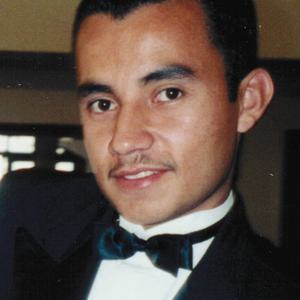
On April 24, 2025, Louisiana District Court Judge Alvin Sharp set aside Jimmie Duncan’s first-degree murder conviction and death sentence. Mr. Duncan was sentenced to death for the 1993 death of his girlfriend’s toddler largely based on faulty bite mark evidence. Judge Sharp, in a decision that came after a September 2024 evidentiary hearing, held that expert testimony presented during this hearing demonstrated the bite mark analysis used against Mr. Duncan is “no longer valid” and “not scientifically defensible.”
Mr. Duncan’s 1998 conviction relied on forensic evidence and testimony provided by dentist Dr. Michael West and pathologist Dr. Steven Hayne, whose work as state experts has come under scrutiny because of their involvement in wrongful convictions. Their testimony has been discredited in numerous cases, with nine prisoners — three of them death-sentenced — freed from prison after it was proven that their convictions were based at least in part on inaccurate evidence. Mr. Duncan was the last person sentenced to death based on their questionable forensic techniques, according to ProPublica.
During the September 2024 evidentiary hearing, several experts testified to the errors committed by both Dr. West and Dr. Hayne. On the stand, Dr. Lowell Levine told the court that the examination method used by Dr. West was “bad,” while Dr. Adam Freeman told the court that the scientific basis of bite mark analysis is no longer valid. Dr. Freeman reviewed the evidence against Mr. Duncan and determined that the marks deemed bite marks were not bite marks at all. On the stand, Dr. Freeman stated that bite marks are subjective, and thus, the product of “junk science” and as Judge Sharp notes, “scientifically indefensible.” Dr. Robert C. Bux, a board-certified pathologist, also testified and raised several issues with Dr. Hayne’s autopsy, including the fact that Dr. Hayne was not board-certified. Dr. Bux opined that the cause of death was not a homicide, but rather an accidental drowning.
The new expert testimony suggesting the child’s death resulted not from homicide but from accidental drowning was compelling to the court because it supported Mr. Duncan’s innocence claim. Mr. Duncan has long maintained that he left his girlfriend’s daughter, Haley Oliveaux, in the bathtub alone while he washed dishes, and returned to find her floating face down. Judge Sharp, in his ruling, also held that Mr. Duncan received ineffective assistance from his trial counsel, Louis Scott, who failed to “investigate or present evidence that was available at the time of the trial,” develop a coherent defense theory, or disclose a conflict of interest.
Evidence uncovered by Mr. Duncan’s post-conviction attorneys included a jailhouse informant who later recanted his testimony; previous head injuries Haley had suffered that could have explained her death; and video evidence suggesting that Dr. West may have manipulated bite mark evidence by grinding a cast of Mr. Duncan’s teeth into the victim’s body. In a 2020 interview, Dr. West claimed he was simply using “direct comparison,” a bite mark technique in which a mold of the suspected individual is pressed directly into a suspected bite mark. Prior to this interview, in a 2011 deposition, Dr. West acknowledged his loss of confidence in bite mark evidence, saying, “I don’t believe it’s a system that’s reliable enough to be used in court” and admitting to previous errors. As recently as 2023, however, Dr. West claimed his techniques were valid because others had made use of them.
District Attorney Robert Tew may choose to appeal Judge Sharp’s decision, retry Mr. Duncan on murder or lesser charges, or accept the court’s ruling and release him. Twelve individuals have been exonerated and freed from Louisiana’s death row since 1973.
Richard A. Webster, Louisiana Judge Nullifies Death Row Inmate’s Murder Conviction That Was Based on Junk Science, ProPublica, April 25, 2025.
Innocence
Mar 20, 2025

